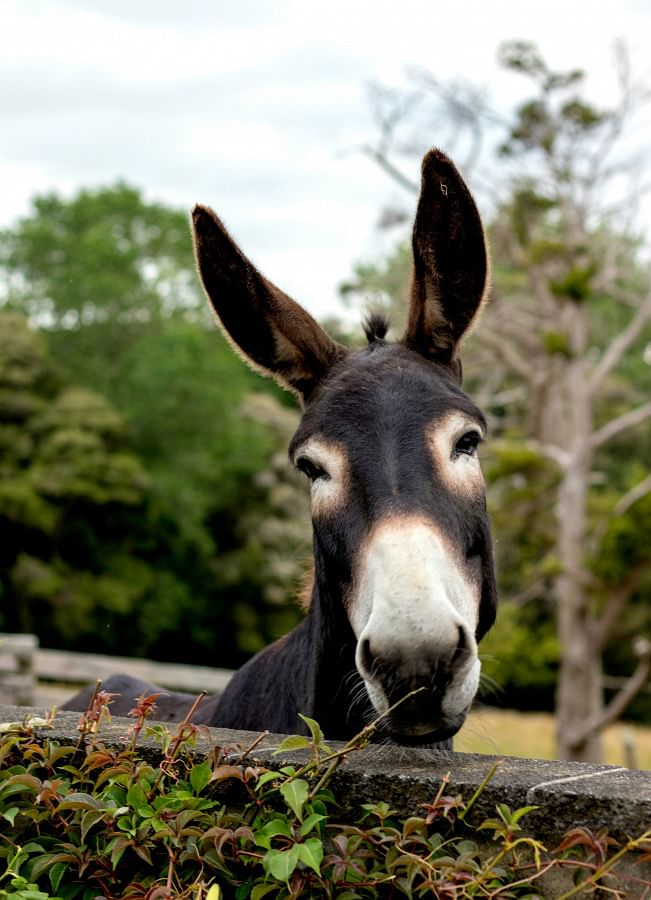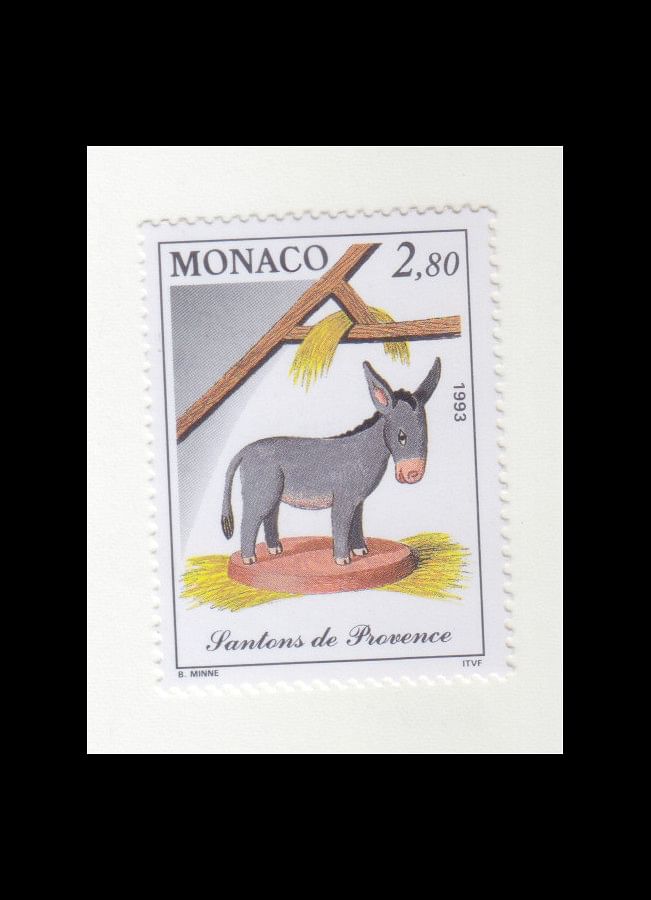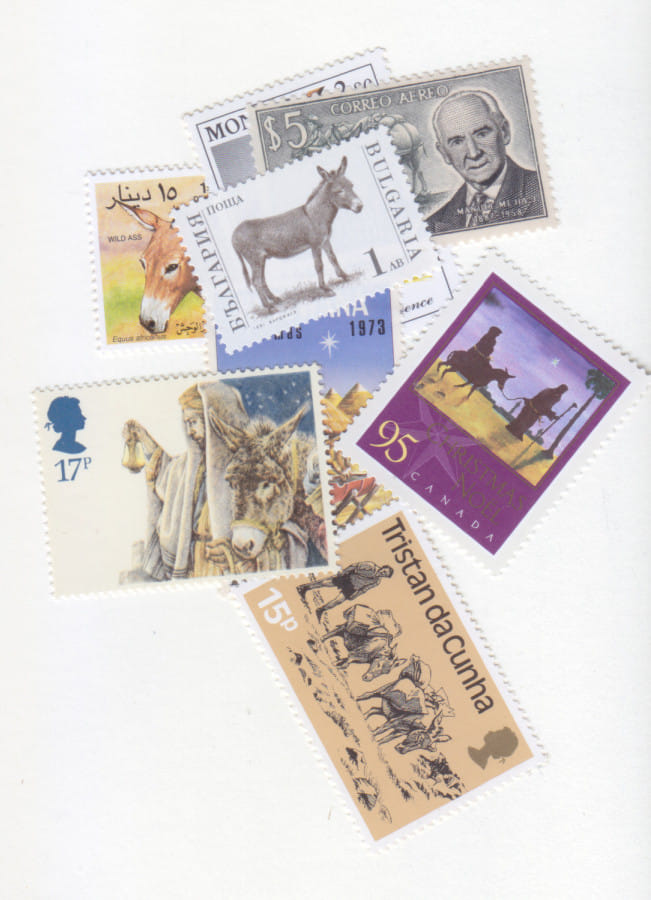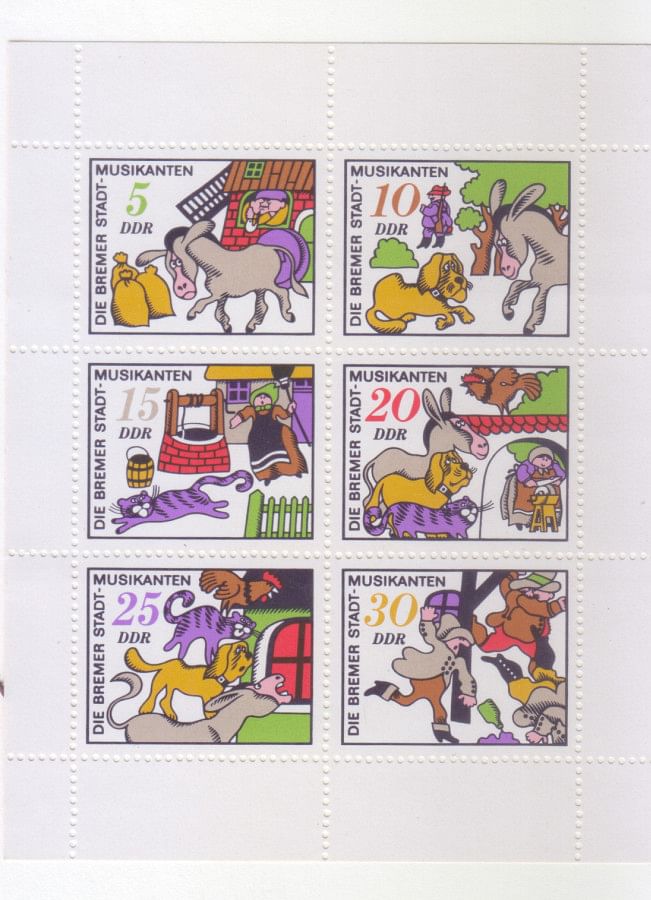For millennia, donkeys have befriended humans. Traditionally used as load carriers, they still serve as pack animals in parts of Africa, Asia, even Europe and the Americas. This is the story of how a philatelist and animal lover combines his two interests — donkeys and stamps — to create a curious narrative.
A casual Google search started it all. Apparently, the number of people "killed" by donkeys is greater than the number of lives claimed in plane accidents annually!

It is, of course, a myth, like many others, surrounding the donkey. Further investigation showed that there are over 40 million donkeys globally and still a major contributor to the rural economy in many countries.
Days and countless hours spent on Wikipedia later, I found myself spiralling down the proverbial rabbit hole!
Amid the COVID-19 lockdown, I started buying books, from nursery rhymes to scholarly works on the social contribution of donkeys; re-reading A Midsummer Night's Dream gave a different feel to the human perception of the animal, and brushing up on mythology to find donkey references took me back to my childhood.

I watched Shrek for the umpteenth time and laughed at the subtle jokes, some of which made sense for the first time. Not that I had any intention of breeding animals, but there I was going through veterinary articles in the pursuit of unravelling all things donkeys!
The donkey population of Bangladesh is perhaps confined to zoos as historically, there was no need for their use in this riverine land but as a simple animal lover, I was intrigued by the nature of these neglected animals and moved by the plight of donkeys and mules across the world.
Biologically speaking, they are distant cousins of horses and zebras. As early as 4000 BC, donkeys were domesticated in North Africa and Egypt for meat and milk. While horses were tamed for hunting by men, donkeys were predominantly used by women to finish chores like carrying drinking water.
If we start to compare the lives of donkeys with the lives of horses in the present scenario, one may easily relate to the cruelty that these animals endure.

Often termed "stupid" and "stubborn," donkeys are in fact, extremely intelligent creatures. Their stubbornness is a misinterpretation of their carefulness, which they nearly always exercise to assess their surrounding environment before making a move. Once they establish a relationship with their human custodians, donkeys start behaving like the perfect animal companions.
It is also a little-known fact that donkeys have helped humans conquer hostile territories — from creating habitats in remote islands to moving the mail and other loads across deserts and jungle terrains. Humans probably could never have survived on remote islands like Ascension and Tristan da Cunha had there been no donkeys to help them carry water.
Mining during the Californian gold rush perhaps could never have happened without the help of donkeys and mules. It was Christopher Columbus who introduced the animal to the Americas during his second voyage, and they had a profound impact in building the local economy. Speaking of mules, it serves as an interesting anecdote that George Washington, the first US president made a handsome living, upon his retirement from politics, by breeding mules!
Now, the question may arise, how does philately come into donkey matters? Well, one of the popular ways of collecting stamps is by themes, where one attempts to collect stamps and other postal materials on a chosen subject.
The goal is to narrate a story. Thus, a thematic collection on "lions" not only comprises stamps with the animal in the design but, for instance, also a section on the philanthropic movement, Lions Clubs International Foundation (LCIF).

While researching donkeys, to boost my collection, I was also making significant purchases from shops in Dhaka, dedicated Facebook pages trading stamps, eBay, and foreign auction houses dealing in philately.
There are thousands of stamps featuring donkeys in the world (surprise!), and technically speaking, they all have a space in my album, but any attempt for a world collection, even on a topic as obscure as donkeys, is futile. Whatever the limitations, it did not stop me from being an ardent donkey philatelist!
The moment I learned something interesting, the pursuit was to find a stamp or postal item to narrate that very story. Some materials came cheap, others were affordable, and in my conquest to collect the best of the best, I came across a bizarre material that bore 5-figure price tags in dollars, which I could not afford!
A stamp collector's pursuit is never complete. My thematic collection is an ongoing project that presents the lives of donkeys and starts with the evolution of the animal, the process of its domestication, and further use through time as a pack animal.
It touches upon how donkeys helped humans and continue to help the ultra-poor lead their day-to-day lives. It depicts donkeys as seen through popular culture, in Shakespeare's plays and Shrek, the animated movie franchise.
The philatelic story ends with the narrative of the birth of Jesus Christ and the famed nativity scene, which always features lambs and a donkey along with baby Jesus!
Despite being historically neglected, the role of donkeys in human society is gradually being appreciated. 8 May is celebrated as World Donkey Day; organisations like the Donkey Sanctuary in the UK are doing their part in creating a global movement to ensure the proper treatment of donkeys. Through my collection, I consider myself a humble helper in achieving that goal.
As a donkey enthusiast, I, too, am often at the receiving end of jokes and mockery. If you remember your grade eight literature, you can probably recall laughing at the antics of Nick Bottom. Even Shakespeare did not let go of a chance to make a joke at the donkey! But like the animals I admire, I take things lightly.
The writer is a Senior Sub-editor at The Daily Star and avid philatelist. His other exhibits on the Liberation War of Bangladesh have won several awards at international stamp exhibitions.








Comments